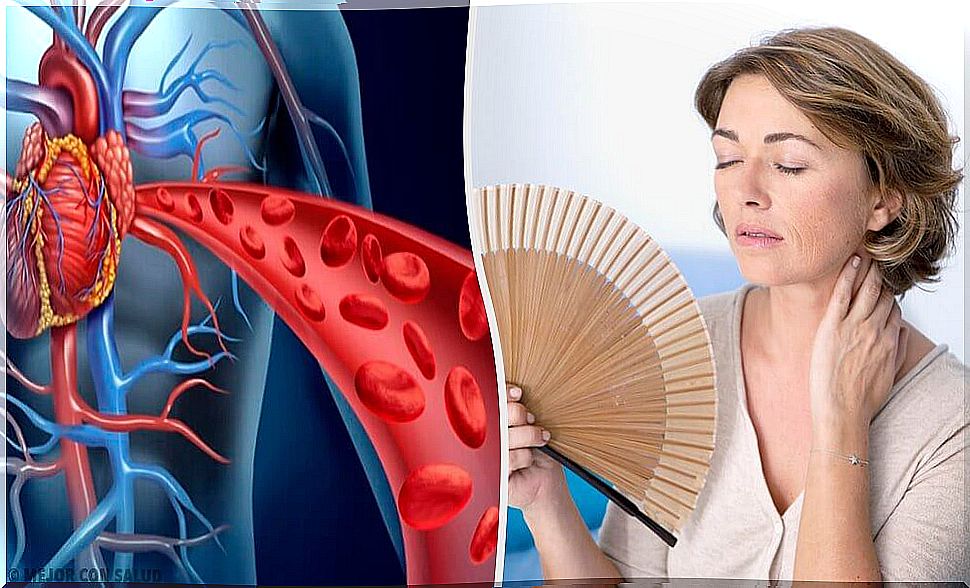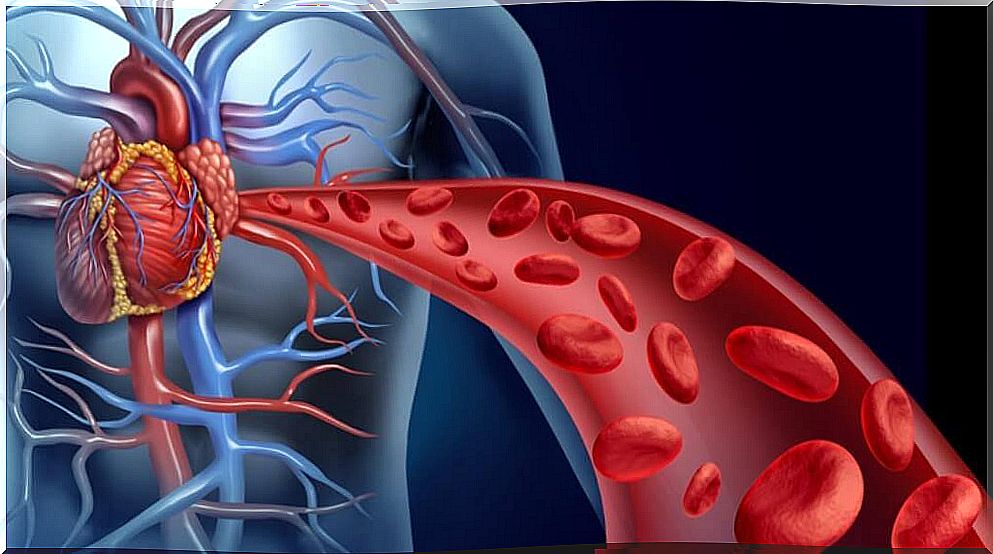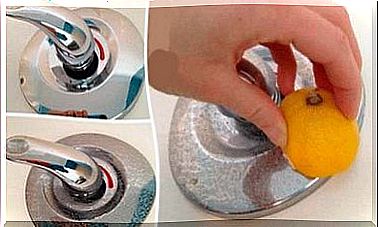How Menopause Affects Heart Health

Menopause is the time in a woman’s life when menstruation stops as well as reproductive life. You might think it’s unimportant, but that’s not true. Have you ever stopped to think that menopause affects your heart health?
At this point, the body gradually slows down the production of important hormones such as estrogen and progesterone. Therefore, a woman’s body is more prone to diseases of various types, which we will describe in this article.
Pay attention and don’t let this change jeopardize your well-being.
Aspects How Menopause Affects Heart Health
Blood flow problems

Decreased estrogen levels are often a major determinant of heart health problems after menopause.
This is because estrogen plays an important role in the flexibility of the inner part of arterial walls.
- One of its functions is to facilitate the relaxation and expansion of the arteries, which allow blood flow.
- Although estrogen greatly benefits the body, some doctors do not recommend postmenopausal hormone therapy.
It is advisable to ask your cardiologist directly which treatment is most recommended for you. He, together with your gynecologist or endocrinologist, will be able to define the appropriate adjustments.
These safety measures are necessary if you are at risk or have a history of heart disease or stroke.
Changes in blood sugar levels
Changes in estrogen and progesterone levels influence the cell’s response to insulin. For this reason, its reduction or change can cause fluctuations in blood sugar levels.
If you’ve never had diabetes, pre-diabetes, or high blood glucose, it’s important to maintain basic control. To do this, you just need to have a biannual review with your trusted doctor.
If you have diabetes, it is important to pay attention to changes in your blood glucose levels. Avoid making decisions alone if you notice changes. Instead, ask your doctor what you should do.
These precautions are necessary because menopause also affects blood vessels and blood.
Most commonly, both arteries and veins lose some pressure, as well as strength and elasticity. All of this can lead to increased blood pressure.
Weight gain

Menopause causes your metabolism to slow down and your ability to digest food less. These two factors result in excessive weight gain.
Overweight women are more likely to have heart problems, ranging from increased blood pressure to cardiac arrest.
To reduce the risks to your heart health after menopause, remember to maintain a healthy lifestyle beyond age 35. The basics are:
- Eat healthily and as naturally as possible
- Do 30 minutes of exercise daily
- drink plenty of water
- Conduct a biannual medical review
Significant Fluctuations in Cholesterol Levels
Menopause also accentuates fluctuations in blood cholesterol levels.
This is because estrogen levels influence LDL cholesterol levels, known as bad cholesterol.
- It is important to keep your hormones in balance at all times.
- If you’ve never taken the time to look at your hormonal system, ask your doctor what blood tests you need.
High cholesterol clogs arteries and veins. Among other problems, affected women can have uncaused bruises and even heart attacks.
Changes in heart rate

Menopause also affects heart rate. This is because the obstructions caused in the veins by hormonal changes modify the blood circulation.
If you have already been diagnosed with other heart problems, it is essential that you pay more attention to the symptoms your doctor has asked you to look for.
In any case, it is important to tell your cardiologist if you experience palpitations and dizziness.
Keep in touch with your doctors
Many women can go through menopause without any problems. However, it is always a good idea to visit the following doctors at least once. In the best case, they will find that everything is perfect and you can rest easy.
The first doctor you should see is your gynecologist. It will analyze the changes brought about by menopause. If your health is in good condition, you may be the only specialist you need to see.
You should also see your cardiologist if your gynecologist notices changes in your cholesterol levels. If you already have a history of heart problems, just go ahead with your routine checkups.









